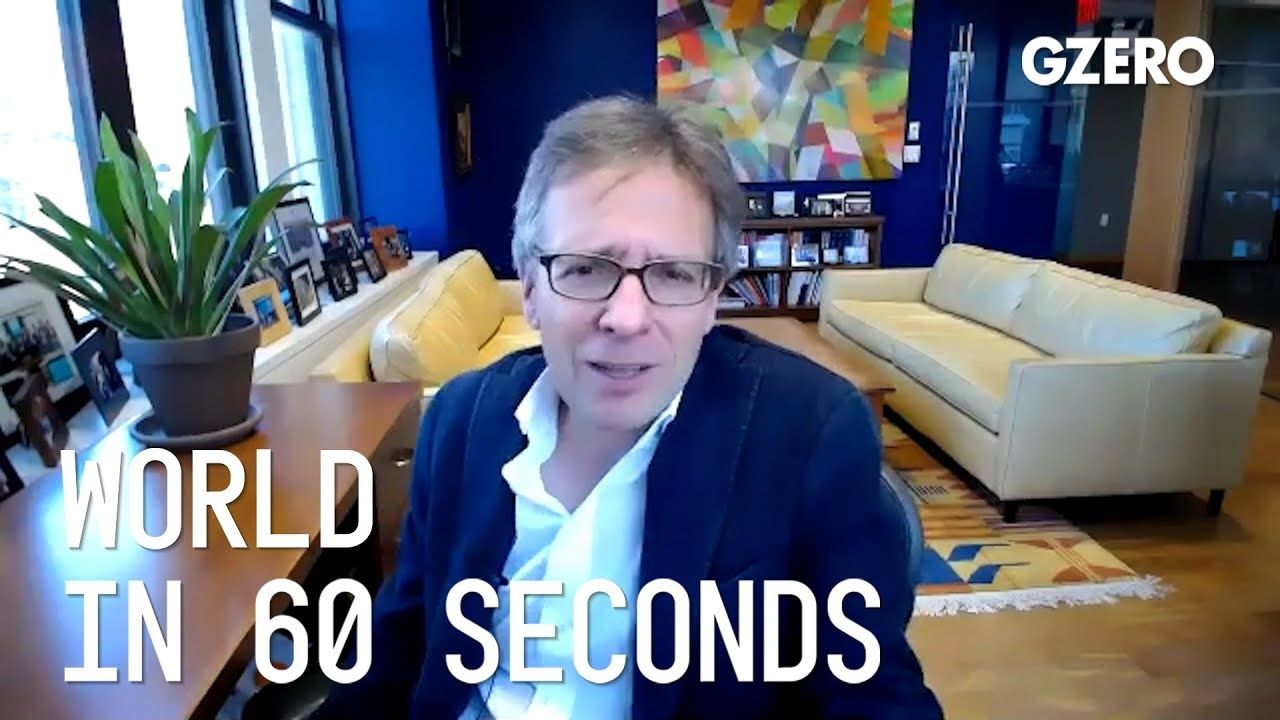Science & Tech
COVID-19 in US, Emerging Markets; US-China Blame Game; Venezuela Coup?

COVID-19 in US, Emerging Markets; US-China Blame Game; Venezuela Coup? | World In :60 | GZERO Media

What is the coronavirus update? Have emerging markets been spared so far?
The biggest news is that the US might have a lot more mortality from coronavirus than previously expected in the models. Particularly as we start seeing opening of economies. The US is a federal system and states don't necessarily listen to each other. They don't follow the federal government, and people don't necessarily pay attention to what state governments say. Put all that together, expect to see a lot more people get sick. Whether that is 3,000 or 800 deaths a day, two wildly different models, for the next month. What I've seen so far makes me feel a bit more optimistic, because opening up economies isn't people in full engagement. Big difference in what government says and what people do.
Have emerging markets been spared so far?
Not at all. But, it is hitting emerging markets a little later. Also, numbers of cases are suppressed by the fact that they're not doing as much testing. In some cases, also suppressed by the fact that maybe there is reduced transmission with much warmer weather. I hope that's the case, but the doctors aren't agreed. Either way, the developing world is focusing more on keeping economies open than at extended lockdowns. For some of the poorest countries, like in sub-Saharan Africa, where average age can be under 20, and economies aren't as globalized, in many cases, focused more on agriculture, the fact that they are as underdeveloped as they are is ironically buffering and protecting them from the worst of the coronavirus crisis.
What are the consequences of US-China blame game over coronavirus origins?
The most important consequence is that we'll see more confrontation and less interdependence between the two economies. The Americans will be investing less in China, reducing supply chain footprint, allowing Chinese to invest less in the United States, much more scrutiny. Some key American allies will be doing the same. In the wealthier European states. In Japan, for example. But the Americans are not getting coordination from allies. In part, that's about Trump. In part, that's about the way they've decided to engage in blame. Particularly the last couple days, saying this came from a lab in China and the secretary of state and President Trump saying there is conclusive evidence, strong, very strong evidence that that is the case. The Americans have shared that intelligence with key allies and the allies are saying this is all open source. There's nothing conclusive and we don't buy it. Even Australia, which can't stand the Chinese right now, getting into a big fight, not supporting the Americans. Really overplaying their hand. There's no reason why the Americans can't focus on, there was a cover up, it came from China, we're blaming the Chinese for that. But by going too far, it's like the weapons of mass destruction moment that Colin Powell, Dick Cheney, had in the Bush administration on Iraq. The Americans lose more credibility hitting the Chinese on this.
Finally, what's going on in Venezuela?
According to the Venezuelan government, there was an effort to invade and stage a coup against Mr. Maduro, that included two Americans, former Green Berets, they are saying. The Venezuelan opposition are denying. The American government is denying. We have no idea what the truth is. You can't imagine the American government saying, that was us, if that was indeed the case. But the Venezuelan government has even less credibility than the US and the opposition. It would not surprise me at all if there were a couple of Americans involved in a military incident. That doesn't mean that it was supported directly or indirectly by the US government. They could be mercenaries for hire. They could be ideologically aligned. They could be dual nationals, Venezuelans or Colombians. There's been a lot of talk, but no one in the Trump administration, now that Bolton is gone, actively interested in a military solution for Venezuela. In fact, Trump was resistant for Bolton's hard line. He was undermining Bolton both privately and publicly. So, I'm deeply skeptical of that, as I'm deeply skeptical of most things that come out of the Venezuelan government these days.
In this Quick Take, Ian Bremmer reacts to President Trump’s State of the Union address, calling it “a rehashing of the greatest hits” with little new policy direction.
Small business hiring surged 7% above the 2024 average in December, led by a surprise rally in retail. But with uncertainty still historically high and mounting concerns over tariffs, can this momentum survive 2026? Explore the data behind the resilience of the US small business sector. Get the latest economic insights from Bank of America Institute.